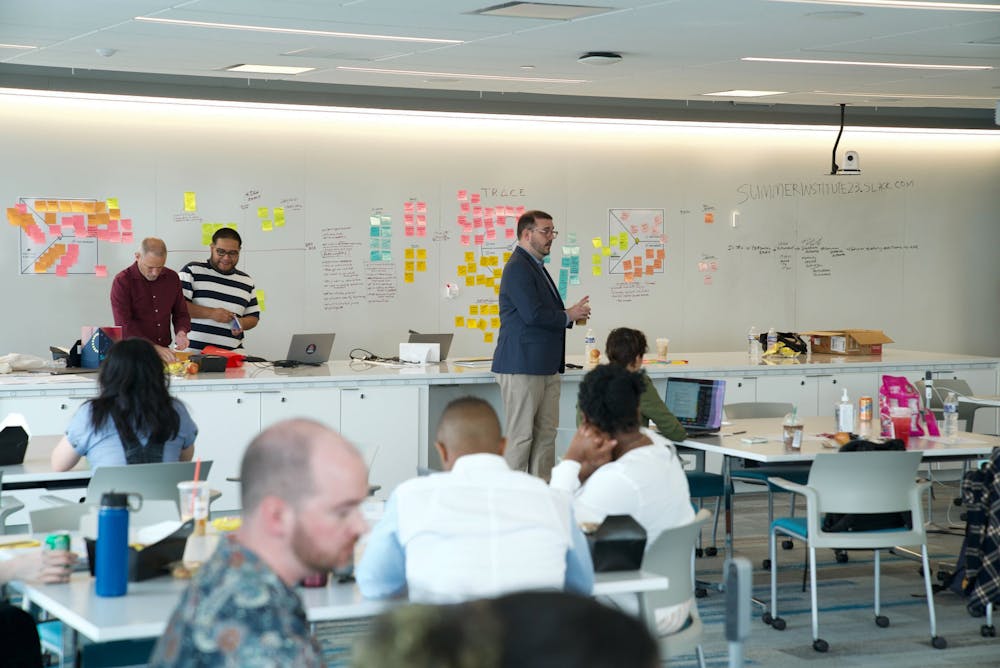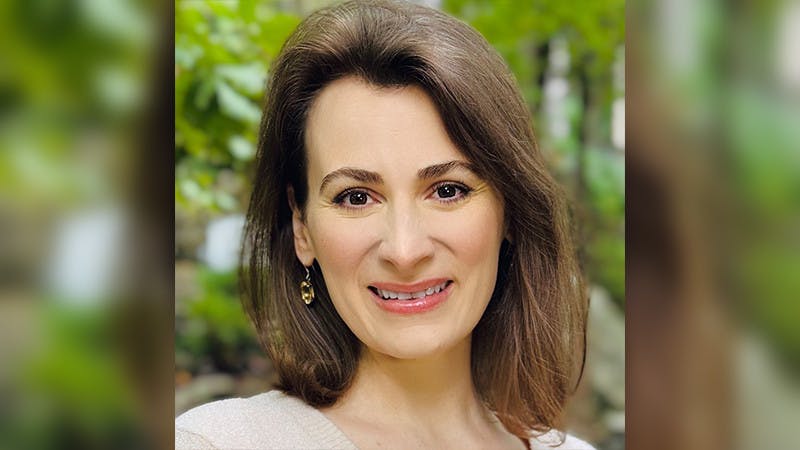
Penn Nursing held its first Summer Innovation Institute in June, hosting members from across the healthcare community for a five-day workshop on designing solutions to achieve health equity.
The on-campus workshop, which ran from June 26 to June 30, aimed to create an interactive learning experience around equity-centered design and innovation. It emerged from a collaboration between Penn Nursing, the Eidos LGBTQ+ Health Initiative, and the Community Collaboratory for Co-Creation. Program attendees said that they appreciated the opportunity to meet professionals from diverse backgrounds and brainstorm solutions to healthcare challenges.
The daily morning sessions — which were open to Penn community members — followed the five steps of design thinking: empathize, define, ideate, prototype, and test. Participants engaged in discussion and attended panels with speakers from Penn Nursing, the Weitzman School of Design, Penn Carey Law School, and the social innovation investor Hopelab.
Marion Leary, the director of Innovation at Penn Nursing and one of the workshop organizers, discussed the importance of the workshop’s interdisciplinary nature.
“Nurses, physicians, lawyers, designers, educators — you need all these folks to have successful innovation,” Leary said. “[The workshop] was an extraordinary way to bring all of our knowledge and lenses together and share that with the attendees."
In the afternoon, Eidos held structured activities for LGBTQ community members and organization partners. The Johnson & Johnson Nurse Innovation Fellowship program also ran sessions for 20 nurse leaders around the country, focusing on how they could incorporate equity-centered design into their work.
Angela Callicutt, assistant director of nursing for the North Carolina Department of Health and Human Services, said that she had not previously considered herself an innovator, but the workshop made her realize that she was constantly designing solutions to healthcare challenges.
“I walked away thinking, 'I am an innovator, I innovate every day,'” Callicutt said. “[The institute] empowers nurses to think outside patient care to how they can improve and be leaders in the system."
Jill Wegener, senior vice president and chief nursing officer at Blythedale Children’s Hospital, said that she appreciated learning from the insights and experiences of her fellow attendees.
“We had the opportunity to get to know nurse leaders from around the country who may be experiencing the same problems as we are,” Wegener said. “We created this network of colleagues that will continue not only through our fellowship, but beyond.”
Nurses from ten hospitals across the country brainstormed solutions to healthcare challenges, such as the lack of sufficiently trained home caregivers for medically fragile children.
“This is an age-old problem, but [the institute is] giving us the tools and access to resources to problem solve differently,” Wegener said.
Nursing Director at Blythedale Children’s Hospital Kara Dyer added that meeting the other attendees helped put her daily work in a broader social context.
“All of us in our day-to-day grind could see the other public and community health issues that ultimately impact our patients beyond our walls,” Dyer said.
Dawn Vollers, regional director for Loyola Medicine's Center for Professional Practice and Development, said that she was most struck by the institute’s approach to design-centered thinking, which focuses on empathizing with the voice of the customer.
“Really understanding what the problem is, committing oneself to getting to the root cause is something that really excited me,” Vollers said. “This is something that I’ve tried to bring into my practice over the last 25 and more years.”
According to Leary, the new program highlighted Penn’s commitment to innovation and entrepreneurship. She attributed its success to the different backgrounds and experiences that each participant brought to sessions.
“The institute really just exceeded all of my expectations, and it was because of all the attendees,” Leary said. “They were so engaged, inquisitive, and knowledgeable."
The Daily Pennsylvanian is an independent, student-run newspaper. Please consider making a donation to support the coverage that shapes the University. Your generosity ensures a future of strong journalism at Penn.
Donate






